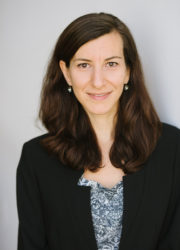Main Session: Marieta Pehlivanova, PhD
Support Needs and Outcomes for Near-Death Experiencers
Abstract
The vast majority of research work on near-death experiences (NDEs) to date has focused on understanding NDEs’ phenomenology, classifications, aftereffects, circumstances of occurrence, and implications for the mind-brain relationship. Nevertheless, there is still a dearth of research into how best to help experiencers cope with and integrate the experience in its immediate aftermath.
NDEs can be hugely life-transforming and powerful experiences. NDEs are often accompanied by a robust pattern of aftereffects, including deep and long-lasting changes in the experiencer’s values, spirituality, relationships, and outlook on life. However, NDEs can also trigger emotional and interpersonal difficulties, and the long-term integration of these experiences and their aftereffects can take years. Experiencers often find it difficult to talk about their NDE with medical professionals and even with loved ones, for fear of rejection, ridicule, or a label of mental illness. Difficulties may also arise from the inability of friends and family to accept or adapt to experiencers’ changing values and interests. At the same time, specialized professional help is limited by the scarcity of counselors, therapists or health professionals familiar with NDEs and specific issues engendered by the experience.
We are conducting an exploratory study to investigate the types of professional help, therapy, and support groups near-death experiencers have sought out to process their experience, and whether those have been helpful. Using online surveys, we are gathering data from near-death experiencers themselves, as well as counselors and mental health professionals who have worked with them. To our knowledge, this is the first quantitative study to explore the types and outcomes of therapies and support avenues for near-death experiencers. Data obtained from this study could help us design data-driven recommendations for supporting individuals who have had an NDE and are experiencing difficulties resulting from it.
Dr. Marieta Pehlivanova is the Principal Investigator for this study, and will present preliminary findings. Dr. Bruce Greyson is a co-investigator.
Presenter Bio

Marieta Pehlivanova, PhD is a junior researcher at the Division of Perceptual Studies at the University of Virginia. Dr. Pehlivanova’s work at the Division focuses on near-death experiences, children reporting past-life memories, as well as other unusual experiences. Marieta holds a PhD in Experimental Psychology and a Bachelor’s degree in Statistics. Prior to her academic work, she pursued a career as a statistician in medical research.